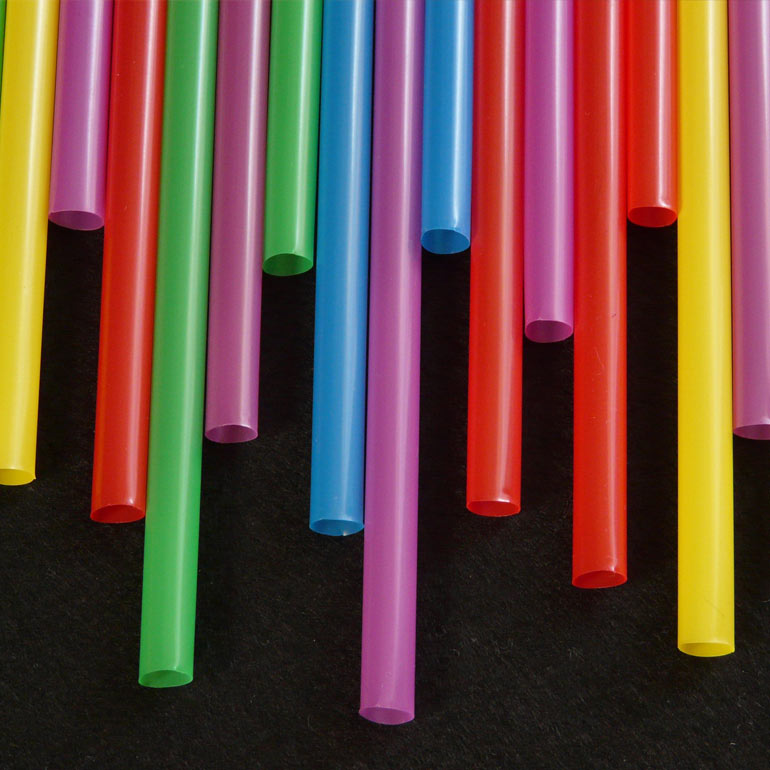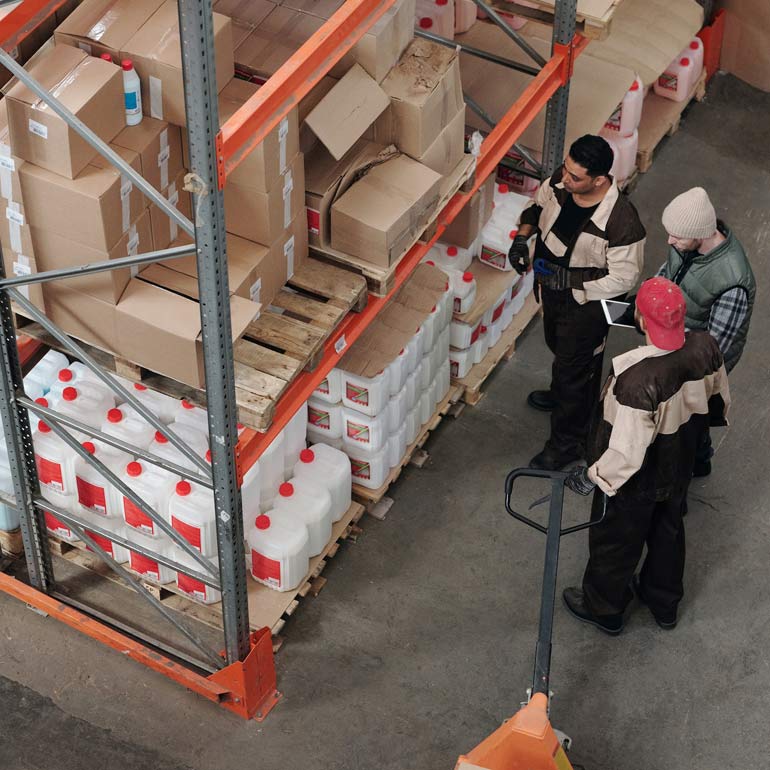Pros and Cons of Eco-Friendly PLA Straws
As the trend towards recyclable and compostable packaging grows, especially in fast food and casual dining restaurants, the spotlight turns to innovative solutions like PLA (Polylactic Acid) straws. These straws, made from renewable resources, offer a compelling alternative to the conventional paper and plastic straws. In this evolving market, Richmond Advantage emerges as a trusted provider, equipping businesses in San Antonio with PLA straws that combine environmental responsibility with practical utility.
Pros of PLA Straws
Biodegradable and Compostable: PLA straws are crafted from plant-based materials like cornstarch, making them a standout choice for environmental sustainability. Unlike traditional plastic, they are biodegradable and compostable. This means they break down into natural elements in a commercial composting facility, significantly reducing their environmental footprint.
Lower Carbon Footprint: The manufacturing process of PLA straws generally results in a lower carbon footprint compared to conventional plastic straws. Since they are made from renewable resources, their production emits fewer greenhouse gases, contributing to a reduction in overall carbon emissions.
Durability: A key advantage of PLA straws over paper alternatives is their durability. They maintain their structure and don’t get soggy in liquids, offering a consistent drinking experience similar to traditional plastic straws. This makes them suitable for a wide range of beverages, from iced drinks to smoothies.
Suitable for Hot Beverages: Unlike paper straws, PLA straws can handle hot beverages without losing their integrity. This versatility makes them a preferred choice for cafes and restaurants that serve a variety of hot and cold drinks.
Safe and Non-Toxic: PLA straws are generally made without toxic chemicals, making them a safer choice for consumers. Unlike some plastics, they do not leach harmful substances into drinks, ensuring a healthier sipping experience.
Variety of Options: Richmond Advantage offers PLA straws in various sizes and colors, catering to different business needs and preferences. This variety ensures that establishments can find straws that fit their specific requirements, whether for branding purposes or specific types of drinks.
Education and Awareness: Using PLA straws also offers an opportunity for businesses to educate their customers about sustainable practices. By opting for eco-friendly alternatives, businesses can raise awareness about environmental issues and demonstrate their commitment to sustainability.
Cons of PLA Straws
Not Home Compostable: While PLA straws are compostable in industrial settings, they cannot be composted at home. This is a significant limitation, as it requires access to specialized composting facilities, which are not available everywhere. For consumers and businesses without access to these facilities, the environmental benefits of PLA straws are less impactful.
Mistakable for Regular Plastic Straws: PLA straws closely resemble traditional plastic straws in appearance and texture. This similarity can lead to confusion during disposal, as they might mistakenly end up in recycling bins meant for conventional plastics, causing contamination in recycling streams.
Higher Cost Compared to Traditional Straws: The production of PLA straws is generally more expensive than manufacturing standard plastic straws. This cost difference can be a deterrent for small businesses or those with tight budgets, making the switch to PLA straws less financially viable.
Industrial Composting Requirements: PLA straws need specific conditions to decompose properly, which are typically only found in industrial composting facilities. This reliance on specific composting conditions limits the environmental benefit if the straws end up in regular landfills where they do not degrade efficiently.
Limited Temperature Range: While PLA straws are more heat-resistant than paper straws, they still have a limited temperature range. They can become deformed or lose integrity at very high temperatures, which can be a concern for businesses that serve very hot beverages.
Production Footprint: Although PLA is a renewable resource, its cultivation and production process still have an environmental footprint. The farming of crops for PLA production can contribute to agricultural runoff and requires land and water resources.
Availability and Accessibility: PLA straws may not be as readily available in all markets compared to traditional plastic or paper straws. This limited availability can be a challenge for businesses that are looking to make an immediate switch to more sustainable options.
Alternatives to PLA Straws
Paper Straws: Eco-friendly and biodegradable, paper straws are a sustainable option. However, their lack of durability and unsuitability for hot drinks limit their practicality in some scenarios.
Traditional Plastic Straws: Known for their durability, versatility, and low cost, plastic straws remain a popular choice. However, their environmental impact, as they are neither eco-friendly nor recyclable, is a significant drawback.
Richmond Advantage - Your Preferred Business Supply Source Since 1986
PLA straws represent a balanced choice for businesses seeking to combine environmental responsibility with practical utility. Richmond Advantage, understanding the needs of businesses in and around San Antonio, TX, offers these innovative straws, along with other eco-friendly alternatives, to meet diverse requirements. With benefits like nationwide shipping, competitive pricing, and free local delivery, choosing Richmond Advantage for your PLA straw needs ensures a balance of quality, affordability, and environmental consciousness. Visit our contact page to explore our range and make a sustainable choice for your business today.














